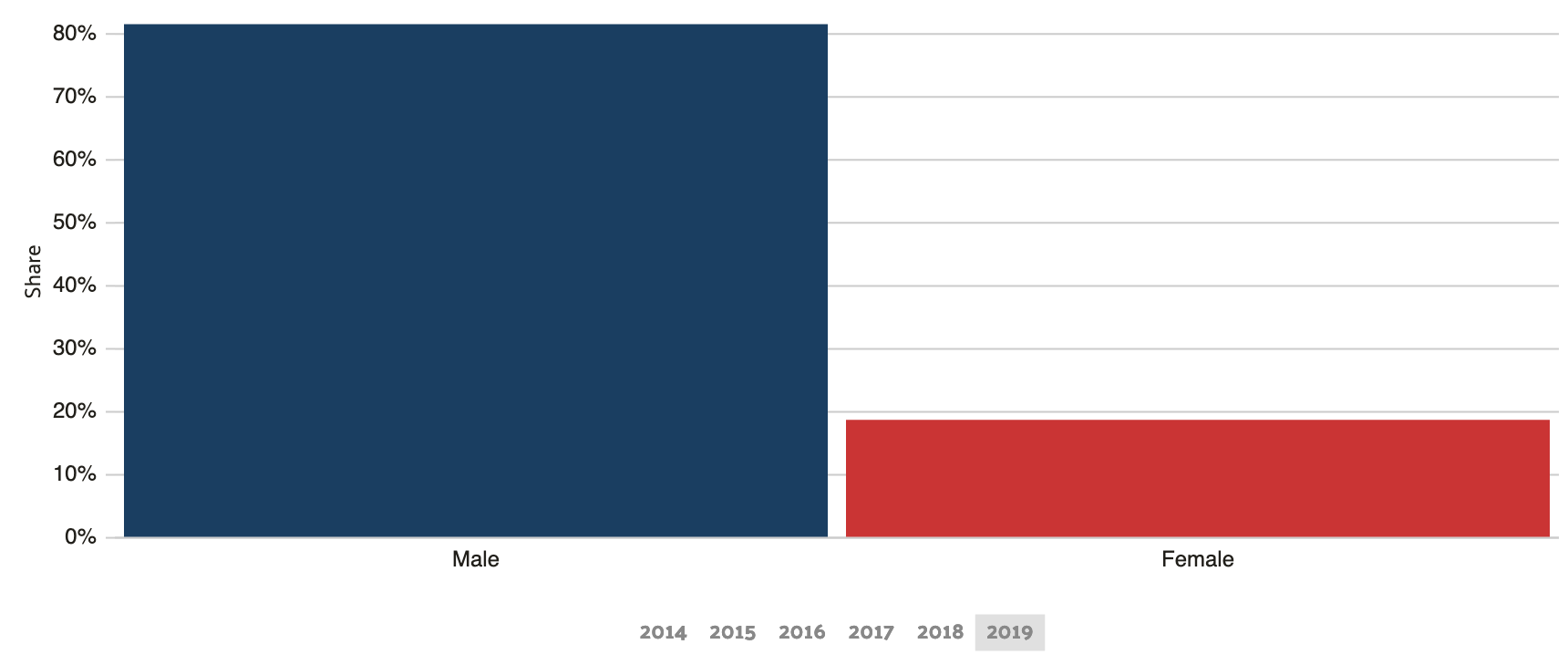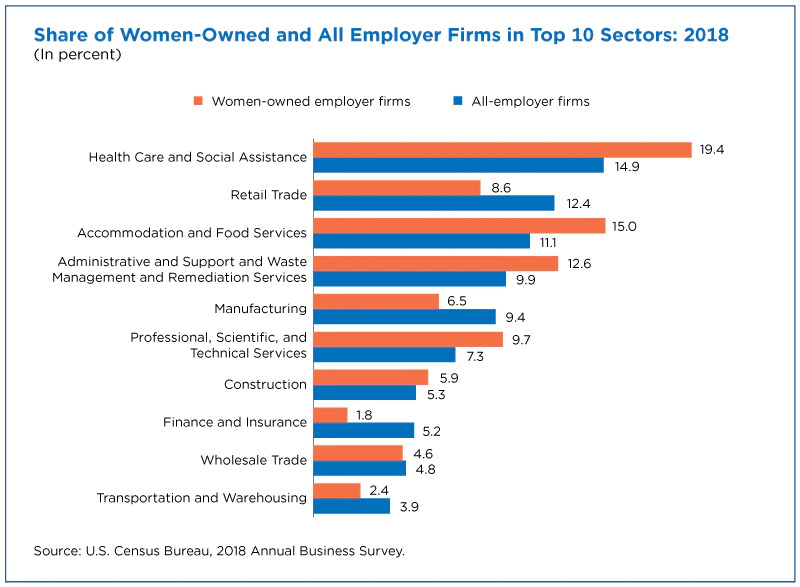Women in Chemical Engineering & Manufacturing
In celebration of Women’s History Month, EcoLink is making a conscious effort to highlight and bring to light all the most up-to-date and relevant information regarding Women in Chemistry and STEM. Understanding women’s added benefit to chemical engineering careers and manufacturing businesses brings to light the contributions of Women in Chemistry. Starting off with women in chemical engineering, how do they contribute?
Benefits of Hiring Women Chemical Engineers
Diversifying your company has a plethora of advantages. With the rise in awareness for gender-inclusive workspaces, women have more opportunities than ever to pursue careers in various fields—including the world of STEM. The chemical industry is one of the areas of STEM that is slowly but surely adding more female employees and leaders to its ranks—and profiting from it. Women in STEM are the future, and in this blog post, we’ll explain the benefits of hiring female chemical engineers.
Skills Needed to Become a Chemical Engineer
Engineering degrees tend to take a minimum of four years to complete and are a necessity for anyone wanting to pursue a career in chemical engineering. During this time, future engineers study an array of scientific areas including, but not limited to:
- Arithmetic
- Physics
- Chemistry
- Biology
These categories accompany various subcategories that these students learn. Even if one wants to specifically become a chemical engineer, they still need to have knowledge in all the other scientific fields, as chemical engineering is complex and pulls from every area of science.
Other Skills Required to Be a Chemical Engineer
Obtaining a degree is only half the work if engineers don’t possess the correct skillsets. Here are some of the most sought-after skills companies look for when hiring chemical engineers:
Attention to Detail
- Since they work directly with toxic chemicals, machines, and other hazardous products, these types of scientists must be cautious and precise at all times. An error or oversight on their part could result in anything from a minor incident, to fatalities.
Math Skills
- The idea of being precise carries over to the scientist’s mathematical skillset. When formulating chemical products, they must allow no room for error in their calculations.
Creativity
- While they must be precise, they also must be willing to take risks. Companies want scientific professionals who will help create new and better formulas, machinery, and other products for their business.
People Skills
- Engineers must be able to communicate with all kinds of people. They must be able to listen and interact with a company’s leaders to learn what they expect of them. And if working on a piece of machinery for a manufacturing plant, then they must listen to the workers who are in direct contact with the machinery to learn of any issues, ideas, etc.
Reasons to Hire Women Chemical Engineers
Women make for great engineers. In general, women tend to…
- Listen and collaborate with others well
- Have a keen eye for detail
- Come up with creative and innovative ideas
- Have a different outlook on issues than men
- Create a safe and inclusive workspace in which all employees benefit
Because of these characteristics, women tend to be great leaders, and scientific professionals must be leaders in their own right if they are to have a successful career. With the growing number of women pursuing degrees and careers in chemistry, companies should be looking to women to fill their engineering positions. Figure one below shows the ratio of men to women in chemical engineering. Though the number is not high, it is still higher than it has been before.

Figure One: Census Bureau, 2019
Chemical engineers are responsible for evolving the world of chemistry, so why not evolve this position by filling it with more equally-capable female engineers?
Recruiting and Retaining in the Chemical Industry
Hiring a diverse team of professionals is key in every industry, but is becoming more apparent in the chemical industry. Chemical engineering and other STEM-related professions remain male-dominated with plenty of room to diversify, especially when it comes to hiring women. More companies are beginning to take notice of the plethora of benefits associated with hiring more females in the field of chemical engineering and are starting to specifically recruit them to their team.
How to Recruit Women in the Chemical Chemical Engineering Industry
- Internal Hiring Opportunities
Create hiring opportunities available to current employees to make lateral or promotional transfers within the company. This will allow your company’s existing female employees to take higher-up leadership opportunities the same as their male counterparts. Not only will the company benefit from a more diverse team of leadership, but will also have the added bonus of not having to train someone new who isn’t familiar with the company.
- Establish a Company’s Commitment to Diversity
If a company seeks to externally hire more women or people of any minority group, then they should take steps to show prospective hires how they’re committed to diversity. Including a statement on the company website and backing up the statement with proof about the company’s commitment to an inclusive team will allow future hires to know the company’s beliefs and values align with their own. This commitment should be ingrained in the day-to-day work life and not just used as leverage to make the company appear more inclusive.
- Target Colleges
The number of females working in STEM-related fields is thanks to the increase in the number of females pursuing undergraduate and graduate degrees in STEM in recent years. This group of women is the future of STEM and engineering professions. If your business is looking to add young and educated hires to your team, then target the promising individuals in the undergrad or grad programs who are eager to start their careers in chemical formulation and design.
How to Retain Women in the Chemical Industry
Recruiting an employee is one thing, but giving them reasons to stay with your business is another. Retaining female employees requires that companies provide them with equal opportunities at all times. This translates to every area of work, including equal pay and equal chance of promotion to leadership positions as other male employees. Your business should also make the effort to offer a great maternity leave plan if applicable and continuously commit to creating a safe and inclusive space.
Women-Owned Manufacturing Businesses
At the beginning of the 20th century, women were not given many opportunities to pursue careers—they could pursue things like teaching, domestic labor, and a limited portion of factory work. In our modern society, women are a major part of the workforce—including the manufacturing industry.
There are many assumptions out there that women are not involved in the manufacturing industry, whether it be because they can’t, shouldn’t, or just don’t. What most people don’t know is that many women hold extremely important roles in manufacturing, even owning successful businesses. In increasing rates, women are earning higher degrees in manufacturing-related fields—in fact, the U.S. Bureau of Labor Statistics conducted research that shows that since the 1960s, the number of women in manufacturing has increased by over 40 million. Despite this, women in manufacturing are still underrepresented, with women making up only approximately 29% of the people in this industry. This makes it even more important to highlight some influential women in manufacturing. Figure two below shows manufacturing businesses primarily owned by women and other industries.

Featured Women-Owned Manufacturing Businesses
- Julie Bartholomew, M.D.
- Bartholomew is the founder, CEO, and global innovations officer for IMX Labs, Inc. IMX Labs, Inc. is an innovative beauty tech company that specializes in cosmetic customization. In fact, this company boasts one of the world’s largest global patent portfolios.
- Lisa Lunsford
- Lunsford is a co-founder and the CEO of Global Strategic Supply Solutions LLC, also known as GS3. GS3 engineers manufacture, assemble packages and ship precise machine parts to a variety of industries, including automotive and healthcare.
- Donna Russell-Kuhr
- Russel-Kuhr is the president, CEO, and co-owner of PTM Corporation and Modified Technologies, Inc., a company that specializes in the design, tool building, prototype, and production of high-quality metal stampings.
- Kelly Victor-Burke
- Victor-Burke is a co-owner and managing member of Burke Architectural Millwork LLC, a custom architectural millwork that produces commercial and high-end residential products such as wood paneling, tables, booths, bars, cabinetry, and more.
- Priska Diaz
- Diaz is the founder and CEO of Bittylab, the company that manufactures the Bare® air-free feeding system, an alternative to traditional baby bottles that has been clinically proven to prevent GERD, reflux, severe gas, spit-up, and colic in babies.
- Aneesa Muthana
- Muthana is the president and co-owner of Pioneer Service, Inc., a small business that manufactures precision machine parts.
- Donna Chambers
- Chambers is the CEO and founder of a company called Sensacalm that hand-sews custom weighted blankets that have proven therapeutic benefits.
- Sandra Young
- Young is the founder and owner of Skyco Shading Systems, Inc., a company that manufactures custom window covering products for commercial and residential purposes.
- Jennifer Manzke
- Manzke is a co-owner of Manzke Machine, Inc., a small business that specializes in taking prototypes to the production stage through design and engineering.
- Kariman Sholakh
- Sholakh is the owner of a Tier 1 certified blown film manufacturing business, Nexus Plastics California, Inc. They produce sustainable packaging and pride themselves on high-quality products and consistency.
In addition to all these amazing women, there are millions more that are extremely influential to the manufacturing industry. Although women in manufacturing are under-represented, the few that have entered the industry are making big waves.
Females Are the Future
EcoLink believes in the importance of educating others about the history of women’s involvement in the chemical industry in order to shine a light on the necessity of females in workplaces predominantly headed by men. Our team has put together a collection of blogs discussing the past, present, and future of women and chemicals. Continue your learning by reading EcoLink’s blog, Why Aren’t More Women in Industrial Chemical Professions? to learn about why women haven’t been more involved with industrial chemical professions in the past!
For more information about Ecolink or questions about the products we offer, please contact us here!




